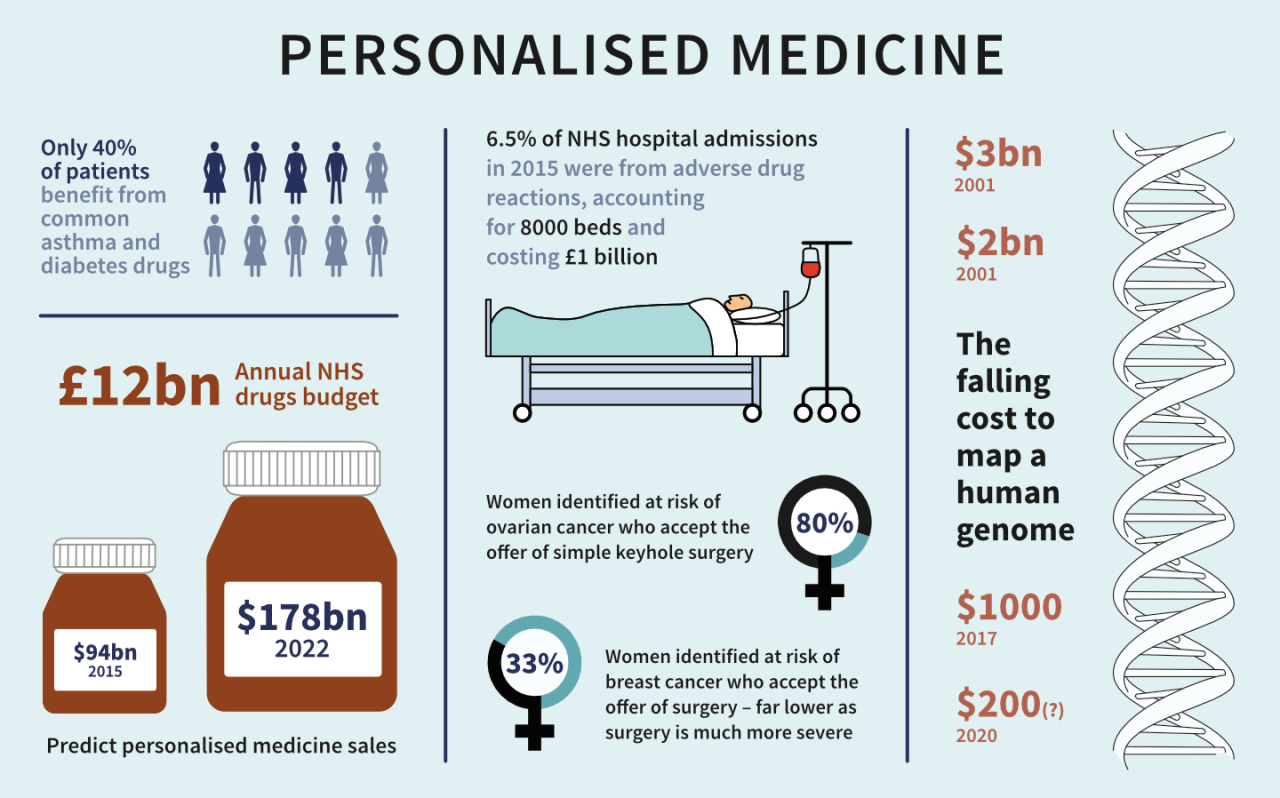

The Role of Technology in Precision Medicine: Revolutionizing Healthcare
Precision medicine is a rapidly emerging field that aims to tailor medical treatment to individual patients based on their unique genetic profiles, lifestyle, and environmental factors. The goal of precision medicine is to provide more effective and targeted treatments, reducing the risk of adverse reactions and improving patient outcomes. Technology plays a vital role in precision medicine, driving innovation and advancement in this field.
Genomics and High-Throughput Sequencing
The first step in precision medicine is to understand the genetic makeup of an individual. Advances in genomics and high-throughput sequencing have made it possible to sequence entire genomes quickly and affordably. Next-generation sequencing (NGS) technologies, such as Illumina’s HiSeq and Pacific Biosciences’ Sequel, can generate massive amounts of genomic data in a matter of days. This wealth of information enables researchers to identify genetic variations associated with specific diseases, paving the way for targeted therapies.
Artificial Intelligence and Machine Learning
The sheer volume of genomic data generated through NGS necessitates the use of artificial intelligence (AI) and machine learning algorithms to analyze and interpret the data. AI-powered tools, such as IBM’s Watson for Genomics and Google’s DeepVariant, can quickly process and identify patterns in genomic data, enabling researchers to identify potential therapeutic targets.
Machine learning algorithms can also be used to predict patient responses to treatment, allowing clinicians to tailor therapies to individual patients. For example, a study published in the journal Nature Medicine used machine learning to predict which patients with non-small cell lung cancer would respond to a specific treatment based on their genetic profiles.
Electronic Health Records and Data Analytics
Electronic health records (EHRs) play a critical role in precision medicine by providing a comprehensive view of a patient’s medical history, medications, and lab results. EHRs can be analyzed using data analytics tools, such as natural language processing (NLP) and data mining, to identify patterns and trends that can inform treatment decisions.
Mobile Health and Wearable Devices
Mobile health (mHealth) and wearable devices, such as fitness trackers and smartwatches, can provide valuable insights into a patient’s lifestyle and habits. This information can be used to tailor treatment plans and provide personalized health advice. For example, a patient with diabetes can use a mobile app to track their blood glucose levels, and receive personalized advice on diet and exercise based on their readings.
3D Printing and Personalized Medicine
Three-dimensional (3D) printing is revolutionizing the field of precision medicine by enabling the creation of personalized models of organs and tissues. This allows surgeons to practice and plan complex procedures, reducing the risk of complications and improving patient outcomes.
Cloud Computing and Collaboration
Cloud computing is essential in precision medicine, as it enables researchers and clinicians to collaborate and share large amounts of data across different institutions and countries. Cloud-based platforms, such as the National Institutes of Health’s (NIH) Data Commons, provide a secure and standardized environment for data sharing and analysis.
Challenges and Limitations
While technology has revolutionized the field of precision medicine, there are several challenges and limitations that need to be addressed. One of the main challenges is the need for standardization and interoperability across different data systems and platforms. Another challenge is ensuring the security and privacy of genomic data, which is sensitive and valuable.
Conclusion
Technology has a vital role to play in precision medicine, driving innovation and advancement in this field. From genomics and high-throughput sequencing to artificial intelligence and machine learning, technology is enabling researchers and clinicians to tailor medical treatment to individual patients based on their unique profiles. As the field continues to evolve, it is essential to address the challenges and limitations, and to ensure that the benefits of precision medicine are accessible to all.
Future Directions
The future of precision medicine is exciting and promising. As the cost of genomic sequencing continues to decline, it is likely that genomic testing will become a routine part of medical practice. The integration of AI and machine learning algorithms into clinical decision-making will become more widespread, enabling clinicians to make more informed treatment decisions.
The use of mHealth and wearable devices will continue to grow, providing valuable insights into patient lifestyles and habits. 3D printing will revolutionize the field of organ transplantation, enabling the creation of personalized organs and tissues.
Ultimately, precision medicine has the potential to transform the way we approach healthcare, providing more effective and targeted treatments that improve patient outcomes. As technology continues to evolve, it is essential that we harness its power to drive innovation and advancement in this field.




